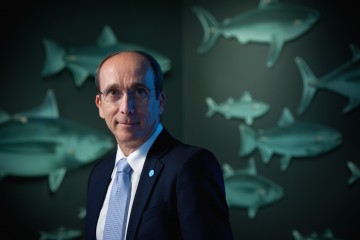IRES Seminar Series
Time: 12:30-1:30 pm
Location: AERL Theatre (room 120), 2202 Main Mall
Modeling Ecosystems: Lessons Learned and the Road Ahead
Villy Christensen
Bio:
Villy Christensen is Professor and Co-Director of UBC’s Institute for the Oceans and Fisheries. He is the lead developer of the Ecopath with Ecosim approach and software, which is used extensively throughout the world for ecosystem-based management of marine and freshwater areas. This work is coordinated through the Ecopath International Research and Development Consortium, which has 24 institutional members, and for which he serves as the Executive Board Chair. He has led more than 50 related training courses and workshops throughout the world, and through this gained considerable experience with the ecology and management of marine ecosystems. He has also authored or co-authored close to 300 publications, including >115 peer reviewed. He currently serves as Coordinating Lead Author for the Intergovernmental Panel for Biodiversity and Ecosystem Services, and has been involved in numerous global assessments, e.g., CBD’s Global Biodiversity Outlook, UNEP’s Global Environmental Outlook, EU’s The Economics of Ecosystems and Biodiversity, and UN’s Millennium Assessment.
Abstract:
Villy will give a brief and subjective overview of the history of ecosystem modeling, going back to Raymond Lindeman, passing by the International Biological Program, and fast forward with an overview of how foraging arena theory came into the picture. The foraging arena theory has fundamentally improved our capability to model the history of ecosystems, and helped improve our modeling capabilities to the degree that it provides just a little bit of confidence that we may be able to model how our actions may impact ecosystems in the future. He will briefly touch upon where ecosystem modeling is heading, and his own current and coming activities and research interests.
